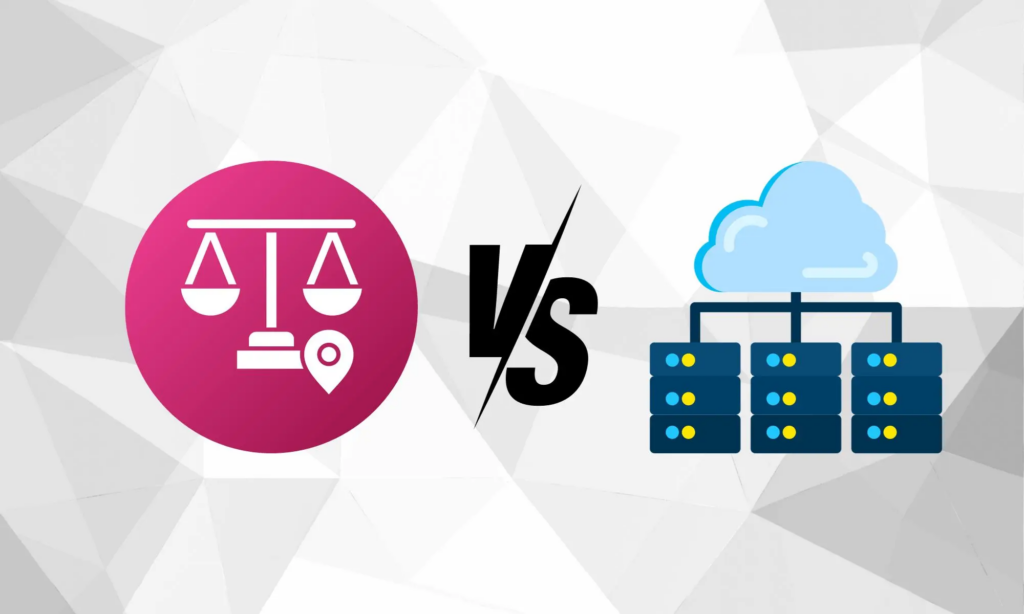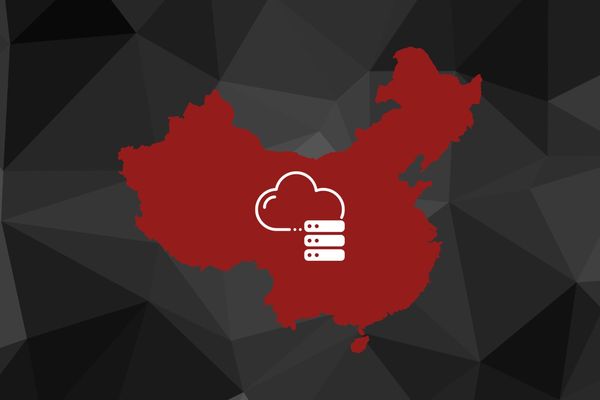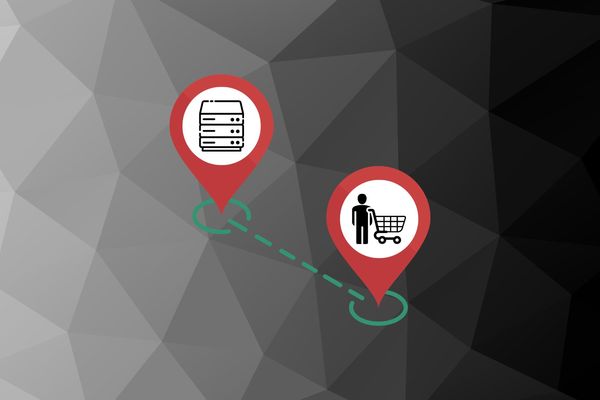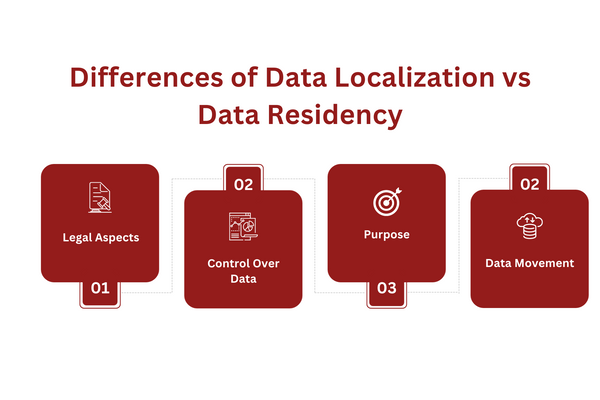
Navigating the world of business data can be like trying to find your way through a maze. You’ve probably heard the terms “data localization” and “data residency” thrown around. But what’s the real difference between them? And why should businesses care?
In this guide, we’ll break down the ins and outs of data localization vs data residency.
We’ll explore what each term means, why they matter, and how they impact businesses like yours. So, if you’ve ever scratched your head wondering about these terms, you’re in the right place. Let’s dive in and clear up the confusion together.
Key Takeaways
Data localization is all about keeping information inside the borders of a specific country. Data residency refers to the locations businesses select to store their data, often for legitimate reasons.
Safeguarding data is critical, and this requires understanding regulations, monitoring your data regularly, and choosing secure storage solutions.
Having a clear data management strategy is wise. It assists with determining appropriate data handling and enables recovery if problems occur.
What Exactly is Data Localization?
What Exactly is Data Localization.jpg

So you’ve got this business, right, and you’re collecting all this data on your consumers. But then some countries say, “if you’re getting data from our residents, you have to keep it here in our country,” and that thing is called data localization.
Data localization is basically a rule for where businesses can put their data. Any data created inside a country’s borders has to stay there. They’re really strict about personal data, including things like names, addresses, and especially any private or sensitive information.
Why do countries like China, with the China PIPL, have this rule? It’s to protect their residents. By keeping the data close, they think they can better guard it from being misused or hacked. Also, it lets them control it more, so businesses follow local laws.
Example of Data Localization
A big streaming service like Netflix has viewers all over the world, including in Vietnam. Vietnam has a law called the PDPD that says the data of Vietnamese residents needs to be protected and stored in Vietnam, and so if Netflix collects info about what Vietnam subscribers watch, they have to make sure it stays in Vietnam.
Netflix could maybe set up some data storage thing just for Vietnam or work with a cloud business there to keep that data inside the country. It’s about respecting the privacy of Vietnamese consumers by keeping their data inside Vietnam, as the law says.
Australia has some specific laws about protecting people’s financial information and keeping it private.
So, let’s think about a big business called Intuit that sells stuff like QuickBooks all over the world to help with accounting and taxes. If Intuit is getting loads of private business data from Australian businesses and customers, the Australian government says they have to store it in Australia, not ship it overseas.
So Intuit’s got a couple of options if they want to keep operating down under. They could build their own data centers there locally to store everything.
Or maybe partner up with some Australian tech business that already has data storage set up, and either way, they have to comply with those Australian regulations if they want to keep doing business and making money in Australia.
What Exactly is Data Residency?
What Exactly is Data Residency.jpg

Data residency is a big trend in the fast-paced business data world these days. But what’s it all about?
Data residency basically refers to where businesses decide to store their data geographically. Businesses choose data residency locations deliberately. There are often rules or regulations saying they need to keep data in certain spots.
Why do these data residency rules exist? Well, sometimes it’s to follow laws. Other times, businesses might want to tap into benefits like improved performance that come with storing data in particular areas. But whatever the reason, the main point is keeping data in an intentional, chosen spot.
In short, data residency is about businesses picking a geographical home base for their data, whether for legal or strategic reasons. It’s an important concept that keeps popping up as data becomes more central to business.
Example of Data Residency
A good example is a US eCommerce store that has an Irish customer base that decides to store its data in Ireland.
This is because the European Union, which includes Ireland, has strict rules around storing users’ personal information and also because having their servers closer to users would make access time quicker for those Irish customers.
Assuming they comply with all EU privacy policies, like providing users a high level of protection on what consumer details are stored or how they can be used, among others.
Being physically close improves overall website performance, meaning a smoother shopping experience for its local consumers, leading to potentially higher customer satisfaction rates, hence contributing towards business growth.
In this scenario, finding a suitable cloud provider located within borders that suits businesses’ needs provides elements of convenience, too as compared to building their own private management infrastructure there outright.
Differences of Data Localization vs Data Residency
Differences of Data Localization vs Data Residency.png

Businesses often grapple with where to store their data. Two terms, data localization and data residency, frequently come into play. While they might seem interchangeable, they have distinct nuances that businesses should be aware of. Let’s dive deeper into their differences.
Legal Aspects
Data Localization is often driven by mandatory laws set by countries. For instance, a country might demand that all personal data of its citizens be stored within its borders. It’s non-negotiable, and businesses have to comply.
Data Residency leans more toward organizational policies. A business might decide to store its data in a specific location due to operational benefits or to meet certain regulatory guidelines, but it’s not always a strict legal requirement.
Control Over Data
Data localization is when the government gets to be in charge of the data and makes sure it stays inside its borders. They want to control the data for national security reasons or to get some economic advantages.
Data residency is different, though. The data’s got a main home, but that doesn’t mean the government’s breathing down its neck all day. It’s more just about where the data primarily lives, and businesses can still move it around and access it based on what they need operationally.
Purpose
With data localization, it’s all about power and protection. Countries aim to have complete control over the data of their citizens. They want to join and shield it from outside influences and any possible harm.
On the other hand, data residency has a different focus. It’s more about being swift and efficient. For businesses with a lot of consumers in one area, it makes sense to keep their data close. This way, they can process it faster and offer top-notch service.
Data Movement
Data localization is like having your data locked up tight in a room, with strict rules set by different countries saying it has to stay put. The data that are picked up within a country’s borders isn’t allowed to be moved or stored anywhere else outside them, which makes transferring data internationally really tricky.
Data residency is typically more flexible. Even though there’s a main spot marked out for storing the data, it’s not totally trapped there, and businesses can shift back up or even copy this same data to other places if they need to, like for keeping things running if there’s a disaster, balancing workload or other stuff going on operations-wise.
Best Practices for Compliance with Data Localization & Residency
These days, data is more valuable than gold for business. But with all that power to collect information, comes a whole lot of responsibility for compliance, too. Businesses have to stay on top of how they manage data, with new regulations popping up everywhere about keeping data local and not shipping it overseas.
There’s like a maze of rules to follow now. Let’s talk about some ways companies can make sure they’re doing the right things with data.
Understand Applicable Regulations
Handling data is kind of like learning the rules of a new game when you play it in different countries.
The rules aren’t all the same – some places are super strict about what you can do with personal info, while others are more lenient. If your business works in a bunch of different countries, you have to make sure you know all the different laws.
And keep in mind the laws aren’t permanent – they can change over time, so it’s smart to keep up-to-date on that stuff. If you’re confused or not totally sure about a certain rule, ask an expert! They can clear things up and make sure you’re doing everything right.
Develop a Data Governance Framework
Navigating the world of data can be like trying to find your way through a maze. Different terms, different rules, and different expectations. But having a clear plan and a data governance framework can be your guiding light.
A compliance framework, including data governance, isn’t just a fancy term. It’s about knowing where your data is, how it’s being used, and making sure it’s safe and sound. Think of it as the rulebook for how you handle data in your business.
Firstly, it’s essential to know where your data is physically stored, which is referred to as data residency. Then, there’s data sovereignty. This isn’t just about where your data is but also the laws that apply to it in that place. It’s like understanding the local rules and consumers of a city you’re visiting.
But there’s another term you might come across: data localization. This is a bit stricter. It means that if data is created in a country, it should stay there. It’s like saying what’s made in a place stays in that place.
So, when you’re setting up your data governance framework, consider these aspects:
Know Your Data’s Home: Understand where your data is physically stored.
Understand the Local Rules: Be aware of the laws and regulations that apply to your data in its location.
Keep Data Local When Needed: If you’re dealing with personal data in certain countries, remember it might need to stay within that country’s borders.
Prioritize Data Security
Data security matters. With all the cyberattacks and data breaches these days, you have to protect your data. Don’t let some hacker get your precious data! The damage goes way beyond just losing some files.
You could totally trash your reputation and lose a huge amount of money if your data gets hacked. So lock it down tight! Use encryption, make sure only the right people can access it, and keep updating your security tactics and safety first, for real.
Regular Auditing
With Captain Compliance outsourced compliance services, you go through your data and see where it’s stored, who’s accessing it, and if it’s safe. It’s about making sure everything’s in order. If you find a security gap or a data error, you can deal with it right away.
By doing these audits often, you make sure your data are secure. It also means you’re following all the rules and laws about data. It’s way easier to fix a small problem now than a big one later.
Choose Cloud & Data Storage Providers Carefully
When you’re picking data compliance solutions, a place to keep your important things, you have to be choosey. You wouldn’t just shove your prized possessions in any old spot. The same goes for your data – you’ve got to find the best place to store it.
Make sure they follow the rules on data for wherever you do business and if you’ve got things going on in different countries.
Check out how they keep data secure, too. Do they have secure encryption and firewalls in place? That’s like the locks and alarms for data.
Do a little digging. See what other businesses say. Have they ever had any data breaches or lost people’s information? Like how you’d read reviews before buying something, look into the background of your storage provider.
Ensure a Data Backups & Data Breach Plans
Having a data breach plan and a backup means you’ve got a spare copy of your data, just in case something goes wrong. Maybe there’s a technology malfunction, or someone breaks into your database. If that happens, you can use you would need emergency plans like a data breach plan or have backups on hand.
So, always keep a safe copy of your data and be ready for attacks. It gives you peace of mind and helps you be ready for anything.
Closing
Navigating the world of data can feel like trying to solve a big puzzle. But you aren’t alone with this!
Here at Captain Compliance, your trusted corporate compliance partner, we want to be your guide when it comes to your data problems. Whether you’re trying to figure out where to keep your data or how to keep it safe, we’ve got you covered.
So, if you’re feeling stuck about what to do next with your data or need compliance solutions, we’re here for you. Together, we can smooth out the bumps in your data journey so it feels less puzzling and more like smooth sailing. Reach out to us today!
FAQs
What’s the main difference between data localization and data residency?
Data localization means data must stay in the country where it’s created. Data residency is about where businesses choose to store their data, often due to benefits or rules. Both impact how businesses handle and store data.
Are you confused about where to store your data? Learn about data localization laws here.
Why do countries have data localization laws?
Countries use data localization to protect their citizens’ data, ensure national security, and control data access. It’s their way of ensuring data stays safe and under their watch.
Need guidance on navigating data localization laws? Contact Captain Compliance today!
Are there penalties for not following data localization or residency rules?
Yes, businesses can face fines, legal actions, and reputation damage if they don’t comply. Different countries have varying penalties, so it’s crucial to be aware.
Worried about compliance? Check out our guides for more information!
How can businesses assess the risks associated with data localization and residency?
Understanding and managing risks related to data localization and residency is crucial. It involves evaluating where data is stored, the associated laws, and potential threats. A comprehensive data risk assessment can highlight vulnerabilities and guide businesses in making informed decisions.
Want a deep dive into assessing data risks? Explore our Data Risk Assessment guide!